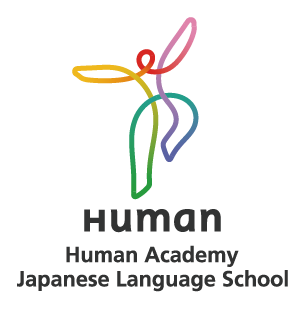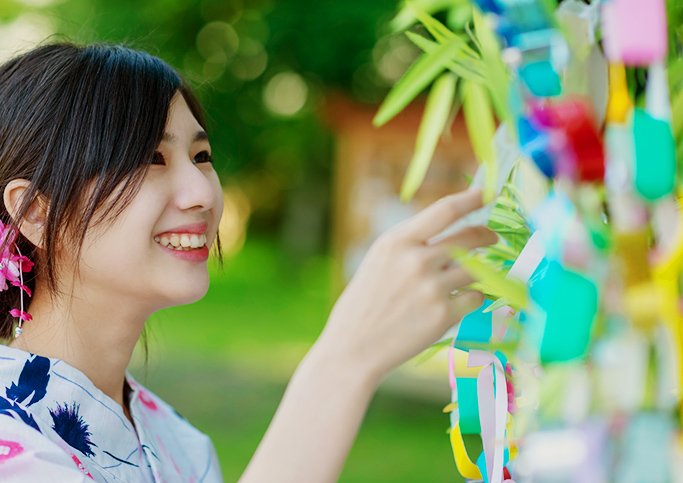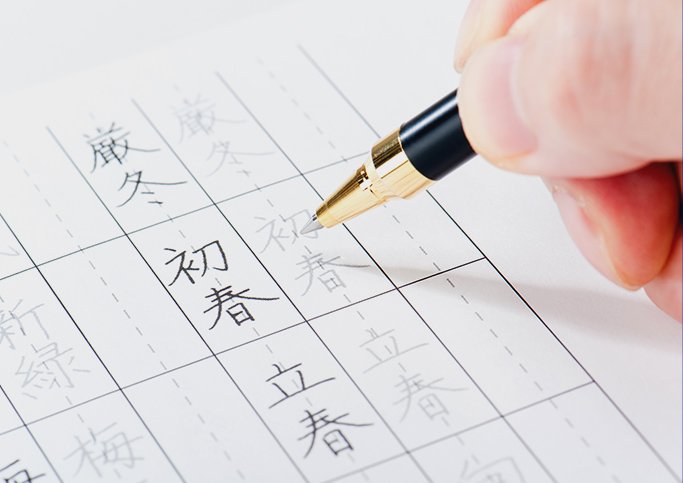
period
~ nichi kan/~ shūkan/~ kagetsukan… How to tell the period in Japanese
6/25/2021
In Japanese, there are a variety of words to express periods of time. Let's learn to use appropriate expressions according to the length of time you want to convey.
1. ~日間(~nichi kan)
The phrase “~日間” (~nichi kan) means days. For example, “2日間” (futsuka kan) means two days. When the specific number of days is undecided, but you want to convey a certain period of time, you can say “数日間” (sūjitsu kan). Note, however, that “数日間” (sūjitsu kan) can be imagined differently from person to person.
Example
私は2日間入院しました。
Watashi wa futsuka kan nyūin shimashita.
I was hospitalized for 2 days.
Example
体調を崩してしまい、数日間会社を休んだ。
Taichō wo kuzushite shimai, sūjitsu kan kaisha wo yasunda.
I got sick and took a few days off from work.
When you want to ask someone, "How many days are you going to travel?”, you can say “何日間” (nannichi kan).
Example
あなたは何日間大阪に滞在する予定ですか?
Anata wa nannichi kan ?saka ni taizai suru yotei desuka?
How many days do you plan to stay in Osaka?
2. 半日(han'nichi)
The word “半日” (han'nichi) means half a day. In general, it means half the time between sunrise and sunset. Half of the working day is also sometimes referred to as “半日” (han'nichi).
Example
今日は半日勤務です。
Kyō wa han'nichi kinmu desu.
I work half a day today.
Example
健康診断に半日かかりました。
Kenkōshindan ni han'nichi kakarimashita.
It took half a day for the medical examination.
3. 1日中(ichinichi jhū)
The term “1日中” (ichinichi jhū) means a whole day. It can also be described as ”朝から晩まで” (asa kara ban made) or “終日” (shūjitsu).
Example
昨日私は1日中外出していました。
Kinō watashi wa ichinichi jhū gaishutsu shite imashita.
Yesterday I was out all day.
Example
朝から晩まで働いたので、とても疲れた。
Asa kara ban made hataraita node, totemo tsukareta.
I worked from morning till night, so I was very tired.
Example
今日は終日予定が空いています。
Kyō wa shūjitsu yotei ga aite imasu.
I'm free all day today.
4. ~週間(~shū kan)
The phrase “~週間” (~shū kan) refers to the period of weeks. It is used in the same way as “~日間” (~nichi kan). For example, “2週間” (ni shū kan) means 2 weeks.
Example
私は1週間のうち、5日勤務します。
Watashi wa isshū kan no uchi, itsuka kinmu shimasu.
I work 5 days a week.
Example
この講座は6週間で終わります。
Kono kōza wa rokushū kan de owarimasu.
This course ends in 6 weeks.
Example
テスト結果が出るまでに、数週間かかります。
Tesuto kekka ga deru made ni, sū-shū kan kakari masu.
It will take several weeks for the test results to come out.
5. ~ヶ月間(~kagetsu kan)
The phrase “~ヶ月間” (~kagetsu kan) means the period of months. The usage is the same as “~日間” (~nichi kan). For example, “2ヶ月間” (ni kagetsu kan) means two months. In addition to “~ヶ月間” (~kagetsu kan), it is written as “~ヵ月間,” “~か月間,” and “~箇月間,” but they all have the same meaning and pronunciation.
Example
研修は3ヶ月続きます。
Kenshū wa san kagetsu kan tsuzukimasu.
The training lasts for 3 months.
Example
小学1年生は3か月間朝顔を観察します。
Shōgaku ichi nensei wa san kagetsu kan asagao wo kansatsu shimasu.
First graders observe the morning glory for three months.
Example
大雨による影響は、数カ月間続いた。
?ame ni yoru eikyō wa, sūkagetsu kan tsuzuita.
The effects of the heavy rains lasted for several months.
[日本のことが気になる?一緒に日本語を学びませんか?]
6. 半月(hantsuki)
The word “半月” (hantsuki) means half a month. It is often used to mean the same period of time as dividing a month in half, or about 15 days.
Example
彼女は半月で2kgも太ってしまいました。
Kanojo wa hantsuki de 2 kg mo futotte shimaimashita.
She gained 2kg in half a month.
Example
大学に入学して半月が過ぎました。
Daigaku ni nyūgaku shite hantsuki ga sugimashita.
Half a month has passed since I entered university.
7. ~年間(~nen kan)
The phrase “~年間” (~nen kan) refers to the period of years. The usage is the same as “~日間” (~nichi kan). For example, “2年間” (ni nen kan) means two years.
Example
天文学者は10年間星を観察し続けました。
Tenmongakusha wa jū nen kan hoshi wo kansatsu shitsuzukemashita.
Astronomers observed stars for 10 years.
Example
私の息子は2年間で急激に背が伸びました。
Watashi no musuko wa ni nen kan de kyūgeki ni se ga nobimashita.
My son grew rapidly in two years.
Example
留学に行った息子は、数年間家に帰ってこなかった。
Ryūgaku ni itta musuko wa, sū-nen kan ie ni kaette konakatta.
My son, who went to study abroad, didn't come home for several years.
8. 半年(hantoshi)
The word “半年” (hantoshi) means six months, half of a year.
Example
私は半年ごとにバスの定期券を購入しています。
Watashi wa hantoshi-goto ni basu no teiki-ken wo kōnyū shiteimasu.
I buy a bus commuter pass every six months.
Example
たった半年でその店は閉店しました。
Tatta hantoshi de sono mise wa heiten shimashita.
The store closed in just half a year.
9. 半期(hanki)
The term “半期” (hanki) refers to the half of a year. It is similar to “半年”(hantoshi) but is often used for business. When a year is divided in half, the first half is described as “上半期” (kamihanki) and the second half as “下半期” (simohanki). The term “四半期” (shihanki) refers to the period in which a year is divided into four equal parts. All of these expressions are used in business. Companies close their accounts and make earnings forecasts within a year.
Example
その百貨店は半期に一度バーゲンセールをしています。
Sono hyakkaten wa hanki ni ichido bāgensēru wo shiteimasu.
The department store has a bargain sale once every six months.
Example
この会社では半期ごとに予算を計上します。
Kono kaisha de wa hanki-goto ni yosan wo keijō shimasu.
The company budgets semi-annually.
Example
上半期の業績は好調だった。
Kamihanki no gyōseki wa kōchō datta.
Performance in the first half was strong.
Example
第3四半期の決算を発表する。
Dai san shihanki no kessan wo happyō suru.
The company will announce its third quarter financial results.
10. 学期(gakki)
The term “学期” (gakki) refers to the period of time when the school year is divided into several parts. In Japan, many schools adopt a three-semester system, where the term is expressed as “1学期” (ichi gakki), “2学期” (ni gakki), and “3学期” (san gakki).
Example
もうすぐ1学期の終業式ですね。
Mōsugu ichi gakki no shūgyō-shiki desu ne.
The closing ceremony for the first semester is coming soon.
The word “新学期” (shin gakki) is a combination of the kanji character “新” (shin) meaning “new.” The term “新学期” (shin gakki) refers to a new semester starting.
Example
今日から新学期が始まります。
Kyō kara shin gakki ga hajimarimasu.
Today is the start of a new school year.
There are a variety of expressions in Japanese to express a period of time. If you are asked, "How long have you been studying Japanese?", can you answer in Japanese? If you are interested in the Japanese language, why don't you sign up for a free membership to Human Academy Japanese Language School Plus. You can experience practical Japanese lessons by experienced teachers for free.
CATEGORIES
FEATURED TAGS
RECOMMENDATION
-
 報BUSINESS TERMS
報BUSINESS TERMSWhat is ”Ho-Ren-So”, one of the basic manners when working in Japan?
10/30/2020
-
 伝WORDS & GRAMMAR
伝WORDS & GRAMMARWhat is easy Japanese?
10/30/2020
-
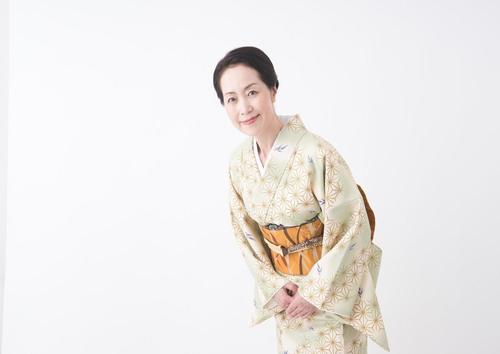 礼MANNERS
礼MANNERSJapanese greeting customs and origins. What are the greetings from other countries?
10/30/2020
-
 戯COMIC & GAME
戯COMIC & GAMEThe roots of animation and manga? Introducing bird and beast caricatures
10/30/2020
-
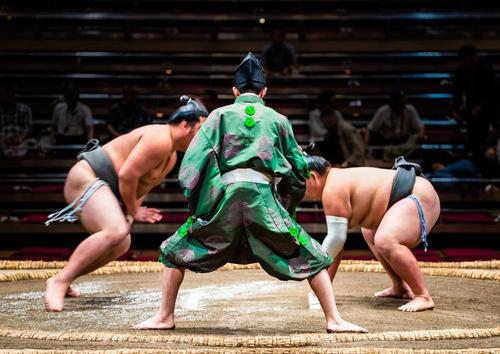 戦SPORTS
戦SPORTSThe history of sumo goes back to the mythical world! ?? Transition from myth to modern times
10/30/2020
LET’S PLAY
KARUTA!
Do you know the meaning of this...
NEXT...
FURTHER EXPLORATION
INTERESTED
IN JAPAN?
WHY DON’T YOU
LEARN JAPANESE WITH US?
START LEARNING
JAPANESE
WITH HUMAN ACADEMY!
ONE OF
THE MOST POPULAR
JAPANESE
LANGUAGE SCHOOLS
JAPANESE
LANGUAGE SCHOOL
OFFERING EXCELLENT
DETAILED LESSONS

ONLINE SCHOOL
- Learn with your classmates from all over the world
- Variety of Courses for All Needs
- FREE Trial Lesson available

TOKYO, OSAKA
- Offer the Best Curriculum for You
- Make New Japanese Learning Friends
- Many Opportunities to Practice Japanese
MAKE FURTHER
STEPS
WITH HUMAN ACADEMY!
ONE OF
THE MOST POPULAR
JAPANESE
LANGUAGE SCHOOLS
JAPANESE
LANGUAGE SCHOOL
PRODUCING MANY
JLPT N1 CERTIFIED
STUDENTS!

ONLINE SCHOOL
- Learn with your classmates from all over the world
- Variety of Courses for All Needs
- FREE Trial Lesson available

TOKYO, OSAKA
- Support Your Higher Goal of Japanese Learning
- Perfect Environment for Japanese Learners
- Learn with Your New Japanese Study Mates


